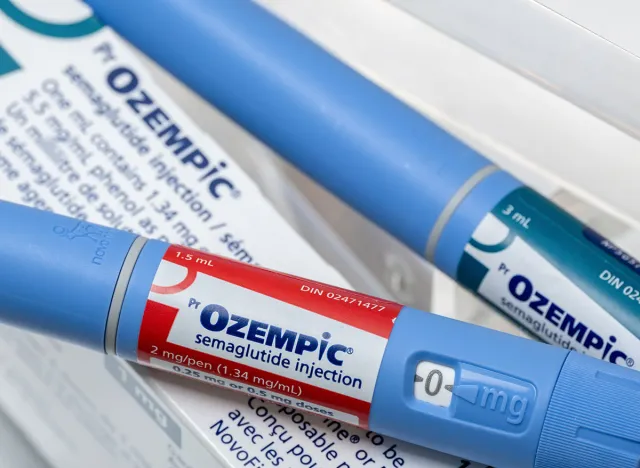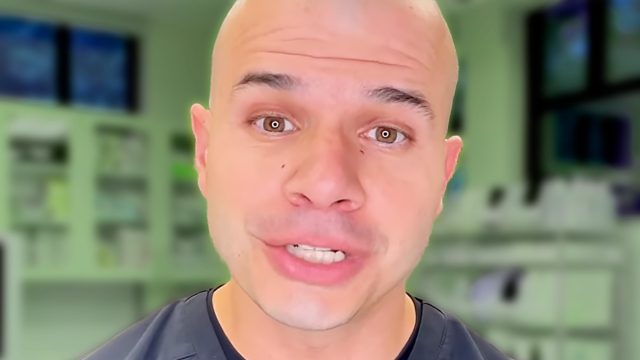10 Weight Loss Clinic Red Flags That Made Experts Say "Run Away Now"
With the rise of weight loss clinics promising miracle results, even medical experts are raising alarm bells. Dr. Christopher McGowan, a triple Board-Certified expert in Internal Medicine, Gastroenterology, and Obesity Medicine, is speaking out about dangerous practices he's witnessing in the industry. "When you see these red flags, run," he warns. Here are the warning signs that make weight loss experts say it's time to find a different clinic.
Beware of Non-Medical Staff Posing as Experts
"Just saying you're a weight loss clinic isn't sufficient," warns Dr. McGowan. Many clinics operate without proper medical oversight or qualified obesity specialists. This dangerous practice puts patients at risk and often leads to ineffective treatments. A legitimate weight loss center must be staffed by physicians with specific training in obesity medicine.
Watch for Aggressive Product Sales Tactics

Experts see red flags when supplements and meal replacements take center stage. "Avoid hype, promise, and upsells," Dr. McGowan stresses. Quality clinics focus on medical care and sustainable solutions, not pushing products. If your consultation feels more like a sales pitch, that's your cue to leave.
Flee from HCG Treatments

"It's a scam. Run from any clinic that offers it," Dr. McGowan states emphatically about HCG treatments. "HCG and injections do nothing for your weight. In fact, that's been shown in numerous clinical studies." He also warns about compounded semaglutide, another red flag treatment that should make patients cautious.
Avoid 'Miracle' Fat Burners

"Fat burners—they don't burn fat and they don't help you lose weight; avoid them," Dr. McGowan warns. These products often come with bold claims but zero scientific backing. Legitimate clinics won't push these ineffective and potentially dangerous supplements.
RELATED: She Started Walking 15,000 Daily Steps to Lose Weight but Found Something Better
Run from Quick-Fix Crash Diets
"These are very low-calorie diets, which means 800 calories or less per day. Sure, you'll lose weight, but then you'll regain it and more. That's almost a guarantee," Dr. McGowan explains. Programs pushing extreme dieting over sustainable changes are setting patients up for failure.
Question Easy Prescription Access

"If you can obtain a prescription for a weight loss medication without meeting with a medical provider, providing your health history, or even seeing a human being, that's a prescription mill," Dr. McGowan cautions. These dangerous practices bypass crucial medical safeguards and can put your health at risk.
Reject Programs Without Nutrition Support

"Nutrition support is key," Dr. McGowan emphasizes. Any program lacking registered dietitian support is incomplete at best and dangerous at worst. Proper weight management requires professional nutrition guidance—no exceptions.
Be Suspicious of Exercise-Only Solutions

"Exercise alone does very little to help you lose weight," Dr. McGowan reveals. "Sure, it's great for your health, but it won't do that much to move the scale by itself." Be wary of programs that promise results through exercise while ignoring other crucial aspects of weight management.
RELATED: 11 Protein Mistakes Are Ruining Your Fat Loss, According to Trainer
Avoid Cosmetic Quick-Fixes

"Liposuction—it's not a weight loss procedure," Dr. McGowan states firmly. "If your goal is to lose weight and to improve your health, don't do it." Experts warn against clinics that promote cosmetic procedures as weight loss solutions, as they often ignore the underlying health issues.
Walk Away from Unrealistic Promises

The biggest red flag? Unrealistic promises. Quality programs are "honest and transparent about expectations," says Dr. McGowan. If a clinic guarantees dramatic results or seems too good to be true, trust your instincts—and the experts—and walk away.
The good news is that legitimate weight loss care exists. Dr. McGowan recommends seeking programs with "ongoing support from registered dieticians" and those "staffed by obesity-trained and credentialed providers." Look for comprehensive care based on medical evidence, not quick fixes or trendy solutions. Your health is too important to trust anything less than qualified, ethical medical professionals. And if you enjoyed this article, take advantage of these 15 Quick Ways to Lose Body Fat Percentage in a Week.





